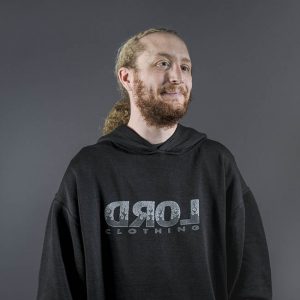Could you tell us about your contribution, Alex?
I have been awarded my professorship in recognition of an outstanding contribution to research and innovation and significant contribution to teaching and learning. A lot of this contribution stems from applied research, with most of my funding coming from Innovate UK.
I am a bit of an academic misfit – whilst my education and teaching has been in engineering (and my teaching is based in the Department of Engineering and Maths), my research is more focussed on computer science, specifically Machine Learning (ML) and Artificial Intelligence (AI). My engineering background means that a lot of what I do is highly applied – taking the latest developments in AI research and working out how I can apply them to make a real-world difference.
Since 2021, I have also been the Research Theme Lead for Digital Connectivity and Technology at the National Centre for Excellence in Food Engineering (NCEFE), where my research drives the adoption of digitalisation and intelligent processes within food and drink manufacturing. This has given me the opportunity, with the support of my research group, to develop and apply state-of-the-art developments in AI and Industry 4.0 to food manufacturing systems to create direct benefits to both regional and national food and drink manufacturers. This is the largest UK manufacturing sector – accounting for 19% of UK manufacturing and directly contributing £28bn to the UK economy.
I feel incredibly fortunate to have worked with some fantastic colleagues here at Hallam and genuinely couldn’t have achieved this without them.
What does it mean personally to you to be a professor at Hallam?
To me, my professorship provides recognition of the work me and my group have been doing in applying artificial intelligence and machine learning to real-world problems with genuine impact. Sheffield Hallam University’s vision is to become the world’s leading applied university and I believe that solving real-world problems is the surest way to achieve that.
Tell us a bit about your career story so far.
I was the first in my immediate family to go to university (coming to Sheffield in 1998 to study an MEng in Computer Systems Engineering at The University of Sheffield). I visited Sheffield twice before applying – the first time with a friend from school on a beautiful sunny summer’s day to look around the department and the city, and secondly, with my parents in the depths of a snowy winter. I fell in love with the place!
After my undergraduate degree I stayed on in Sheffield to do a PhD (in intelligent systems, again at UoS) and did a couple of postdocs there too. However, when I was finishing my second postdoc there were no permanent academic job opportunities in Sheffield, so I joined Manchester Metropolitan University as a lecturer in automotive engineering.
After six years of commuting to Manchester (and two kids!), an opportunity at Hallam came up in 2013 for a Senior Lecturer in Electronic Engineering – I applied, was successful, and no longer had to commute for two hours a day! Since then, I’ve had a huge amount of support from colleagues at Hallam in my career and have been fortunate to work in some amazing teams.
If you could go back in time and give yourself some career advice, what would it be?
Be strategic in what you do. I have always said “yes” to things I thought were cool, without really thinking whether they’d help me progress in my career. Although that has led to some fun stuff, I have often been pulled in a million different directions and it’s caused no small amount of stress!
Invest in your support networks – not only colleagues, but friends and family too. It’s all too easy for me when things are stressful to retreat into my shell but maintaining those support networks is incredibly important and something I wish I’d paid more attention to.
What’s next? How do you want to further develop your contribution?
My research focuses on two distinct areas of impact – digital manufacturing (in collaboration with NCEFE, Siemens, and other academic and industrial partners) and digital healthcare (in collaboration with clinical partners in both the UK and abroad). The common thread through both these research areas is the use of machine learning to deal with time-varying data – from machine operating parameters in Industry 4.0 as an indicator of factory performance, to physiological patient data to support doctors in both diagnosis and prognosis of medical conditions. My long-term goals are, with my research group, to develop these areas into truly impactful world leading research.
As well as this research, I genuinely believe a massive part of the role of a professor is to support and mentor other staff members. This is something I am keen to continue doing going forward. I have been lucky enough to benefit from huge amounts of support from colleagues (both here and elsewhere) and I am determined to pay this forward!